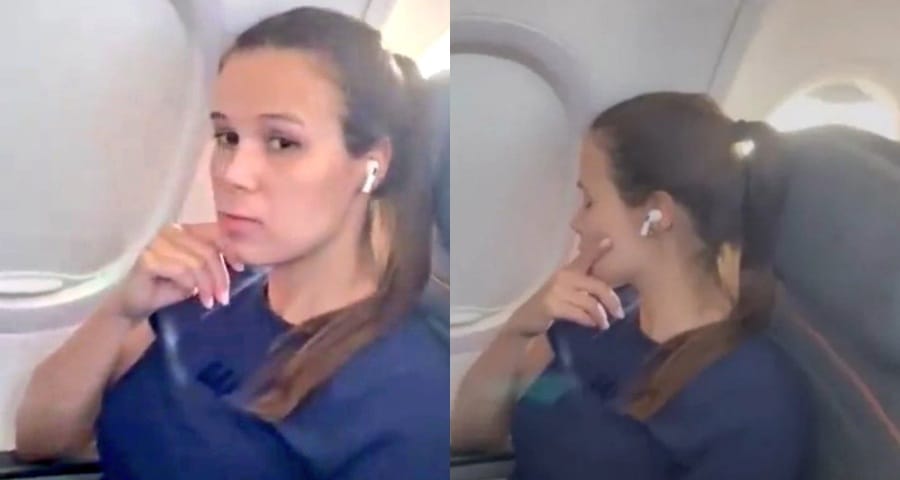In a notable legal battle unfolding in early 2025, Jeniffer Castro, a 29-year-old bank employee from Belo Horizonte, Brazil, has filed lawsuits against GOL Airlines and a fellow passenger following a viral video incident on a December 2024 flight.
This incident, where Castro refused to give up her pre-booked window seat to a crying child, has ignited discussions on passenger rights, privacy, and the role of social media in amplifying conflicts. This article provides a comprehensive analysis of the event, its aftermath, legal claims, and broader implications.
Incident Details
The incident occurred on a GOL Airlines domestic flight, likely from Rio de Janeiro to Belo Horizonte on December 4, 2024.
Castro had selected a window seat in advance, a common practice allowed by GOL’s seat selection policy. Upon boarding, she found a child occupying her assigned seat. She waited for the child to move to his correct seat, but when he did not, she took her seat, leading to the child’s mother becoming upset. The mother, reportedly wanting the child to have a window seat despite already having one elsewhere in the row, accused Castro of lacking empathy.
The video captures the mother stating, “Why doesn’t she want to change seats? She doesn’t have any empathy for children. She’s a cold person. She has no heart.”
Another passenger, not the mother, filmed the interaction without Castro’s consent. The video, viewed millions of times and reposted across platforms like TikTok, went viral, sparking intense online scrutiny and criticism.
Aftermath and Social Media Impact
Following the video’s spread, Castro faced severe online harassment, being subjected to public shaming and relentless negative comments.
The backlash led to her resigning from her banking job in Belo Horizonte due to the overwhelming public exposure. However, an unexpected outcome was her rise as a social media influencer. She gained over 2 million Instagram followers and secured brand deals, pivoting to content related to lifestyle and travel.
Legal Action and Claims
Castro has filed lawsuits against both GOL Airlines and the passenger who filmed her, seeking compensation for unauthorized exposure, public shaming, and emotional distress.
Her claims against the passenger center on unauthorized recording and sharing of her image, which led to the viral backlash.
Against GOL Airlines, she alleges that the airline failed to intervene during the dispute and protect her privacy, particularly as flight attendants did not manage the situation when the passenger was filming. Reports suggest she is seeking judicial secrecy on the case and has not disclosed the exact compensation amount she is requesting.
GOL Airlines has declined to comment on the lawsuit, leaving the specifics of their defense unclear.
Broader Implications and Public Reaction
This case has sparked significant debate on airline seat assignments, passenger rights, and privacy in the digital age.
Etiquette experts argue that Castro had every right to keep her assigned seat. The incident also highlights the tension between passenger expectations and airline responsibilities, particularly in managing disputes and preventing unauthorized recordings.
Public reaction, initially marked by shaming Castro for not accommodating the child, has shifted, with many users on social media expressing support for her.
Comments on various platforms reflect a growing empathy for her position and a recognition of the consequences of public shaming.
GOL Airlines’ seat selection policy allows passengers to choose seats at booking or check-in, with premium options for extra comfort.
However, the airline’s policy on passenger recording or unauthorized photography is not explicitly stated in their publicly available guidelines, which may complicate Castro’s claims against them. This lack of clarity raises questions about airline liability in such situations and could lead to further scrutiny of industry standards regarding privacy and passenger disputes.
